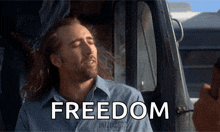
News 📱 Highlights:
Minnesota’s ☃️ Ongoing Disparities in Cannabis 🌸 Convictions
Despite legalization 🗒️, Black Minnesotans remain five times more likely to be arrested 🚨 for cannabis offenses than their white counterparts, revealing persistent racial disparities. Minnesota Journal of Law & InequalityMissouri’s Expungement of Over 1️⃣0️⃣0️⃣,0️⃣0️⃣0️⃣ Cases
Missouri courts 🏢 have expunged more than 100,000 marijuana-related 🥀 cases, including felonies, as part of the state’s cannabis 🪀 legalization and expungement efforts. NORMLNew Mexico’s 🇲🇽 Automatic Expungement Law 🗄️
New Mexico’s legislation automatically expunges records for cannabis 🌵 offenses involving up to 2️⃣ ounces. This law is designed to streamline record-clearing for eligible residents. Collateral Consequences Resource Center

Quick ✏️ Read:
The Reality of Expungement: Expungement 🗃️ of cannabis convictions aims to clear records but is often a difficult legal ✂️ process that many can't navigate easily.
Legalization Doesn't Equal ♒️ Freedom: Legalization may reduce current charges, but past offenders 👮🏿♂️still face challenges like employment and housing difficulties due to lingering background checks ✅.
Marginalized Communities Bear 🐻 the Brunt: Communities most affected by the War ⚔️ on Drugs—especially Black and Latino individuals—face the greatest hurdles in accessing expungement and reintegration 🤝.
Systemic Issues Persist: Simply erasing convictions 👮🏼♂️is not enough; there is a need for deeper solutions like mental 🧠 health support, job training, and equal opportunities in the cannabis industry.
A Path to True Justice 👮♀️: For lasting change, expungement must be paired with legal aid, community outreach 🛤️, and economic reparations to help those disproportionately harmed by cannabis 🎄 prohibition.

Expunging 🧽 Cannabis Convictions: Does Legalization Truly Help the Incarcerated 😡?
As the wave 🌊 of cannabis legalization sweeps across nations, many are left pondering: Does this progress really benefit those previously convicted for cannabis-related offenses❔ The push to expunge these convictions has gained momentum 🏄♀️, but the true impact on incarcerated individuals is still murky 🌫️. Legalization is a promising step 🥾, but does it dismantle the profound effects of a criminal record, or is it merely scratching 🪓 the surface?
Removing the barriers caused by cannabis criminal records is one important step in addressing the harms caused by the nation’s flawed and misguided cannabis criminalization laws.”
The Promise of Expungement: A New Dawn for Cannabis Offenders? 🌅
Cannabis 🥦 legalization has undoubtedly opened doors for the cannabis industry and medicinal use, but it also shines a spotlight 🔦 on the glaring issue of past convictions. Expungement is often touted as the solution to rectify the injustices of cannabis prohibition. By clearing or sealing these records 💿, individuals can theoretically reclaim their lives and opportunities that were previously shattered by a criminal record. However, the question remains—does expungement truly reverse the socio-economic damage 💣 inflicted by years of systemic punishment?
While the legal framework 🔳 for expungement differs from state to state, and country to country, many individuals face hurdles in accessing this relief. The process, often cumbersome 🥒, requires navigating a complex legal system, which many convicted individuals are unequipped to handle. Additionally, not all cannabis-related offenses are eligible for expungement, leaving thousands 👨👩👧👧 still shackled by their past convictions 😢.

Legalization ≠ Freedom: Barriers That Persist 🗝️
Legalization ✏️ doesn’t necessarily equal liberation. While many celebrate the reduction or dismissal of current cannabis charges 🎫, the reality for previously convicted individuals is far more complicated. A criminal record, even if expunged, can still leave an indelible stain on someone’s life 💚 . For many, finding employment, housing 🏠, and even education becomes a grueling challenge, as background checks often still reveal the expunged offenses, creating long-lasting barriers 🚧.
Even in states with automatic expungement policies 📎, the bureaucratic delays can stretch for months or years, leaving people in legal limbo. ⏳ The irony here is glaring—while some enjoy newfound wealth in the booming cannabis 🥝 industry, others, primarily those from marginalized communities, continue to bear the brunt of past punitive measures 📐.
Systemic Issues: Expungement Alone Is Not Enough ⚖️
The cannabis industry 🏫 has emerged as a billion-dollar 💸 juggernaut, yet those disproportionately impacted by the War on Drugs are often the last to benefit from its legalization. Studies show that Black 🙆🏿♂️ and Latino individuals were significantly more likely to face arrest and incarceration for cannabis-related 🚛 crimes, and they now struggle the most with navigating 🚤 expungement processes. Simply removing a conviction from a record does not heal the damage of years lost to incarceration or the stigma carried into society.
True justice ✊ requires more than just record-clearing; it demands reintegration programs, mental health ❤️ support, job training, and equitable opportunities within the cannabis ✳️ industry itself. This raises the question—are we truly addressing the full spectrum of harm caused by prohibition?

The Path 📍 Forward: Building a Just Post-Prohibition World 🚀
To truly help 💌 the incarcerated, legalization efforts must go beyond expungement 💰. There needs to be a multi-faceted approach that tackles the deep-rooted 🌷 inequalities perpetuated by the War on Drugs 💉. Community outreach, accessible legal aid, and economic reparations should accompany expungement to provide a genuine path to redemption ✨.
Moreover, the cannabis industry 🚚 must step up 💹❇️ to offer equitable opportunities for those who’ve suffered under prohibition. Expungement may erase a record, but it doesn’t erase ❌ the systemic inequities that continue to thrive.
Are we 👫 doing enough to uplift those who were once incarcerated ⛓️ for what is now legal❓
🛏️ Take It Easy 🍕

The information provided in this newsletter is for informational purposes only and does not constitute medical, legal, or professional advice. Always consult with a qualified professional before making any decisions based on the content shared here.
